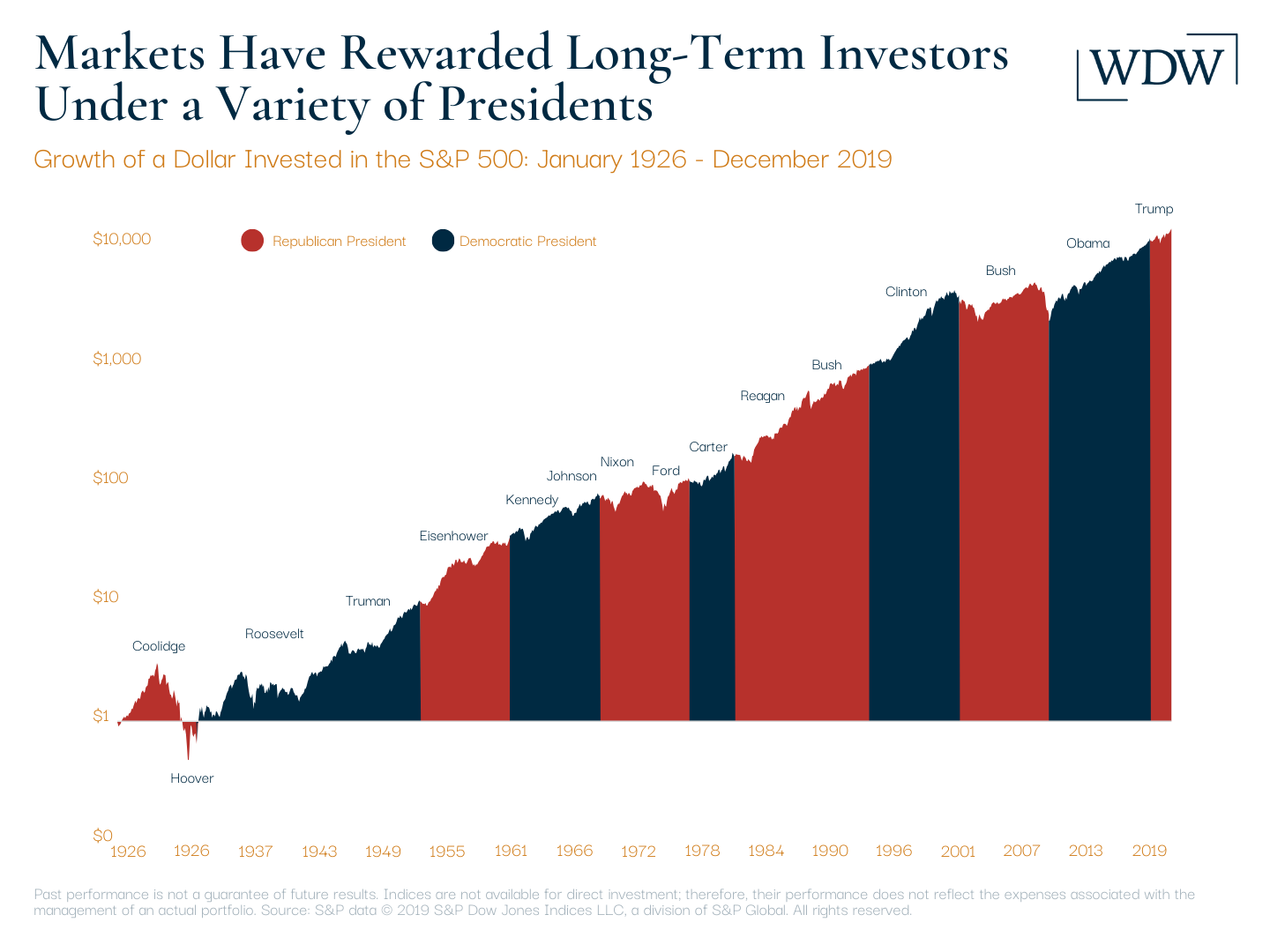As another election cycle approaches, investors often wonder how political outcomes might impact their portfolios. It’s natural to feel concerned about potential market fluctuations during these times. However, historical data and market trends suggest that maintaining a long-term perspective is crucial for investment success, regardless of election results.
Elections undoubtedly create short-term market volatility. The uncertainty surrounding policy changes, regulatory shifts, and economic priorities can lead to temporary market reactions. Investors might be tempted to make knee-jerk decisions based on election outcomes or predictions.
Today we’re digging into what you need to know about the market and election season, especially in light of recent volatility in early August.
What’s Happening with the Markets
Let’s lead with the news that’s causing anxiety for many investors around the country –
- We’ve seen a mass sell-off that began the first week of August, driven by US economic slowdown and labor market data.
- The S&P 500 and the DOW have taken a sharp dip in the wake of a surprise rate hike in Japan.
- A pullback after a strong tech-driven rally, exemplified by The Magnificent Seven.
Keeping Perspective:
- While recent drops are concerning, the S&P 500 is still up 10% for the year in 2024 (as of August 6, 2024).
- At its peak on July 16th, it was up 19%.
- Despite the average intra-year drop of 14.2%, annual returns were positive in 33 of 44 years between 1980 to 2024.
The Urge to React
In 1966, psychologist Dr. Jack Brehm coined the term “psychological reactance.” Simply put, it’s the urge that we all feel to act and regain freedom when we perceive it’s been taken away. This concept applies to market volatility. Your wealth is a tool to gain freedom. It impacts the choices about your future, the flexibility to pivot your plan or lifestyle, and to live comfortably both now and in retirement.
When we experience market volatility, it can feel like our freedom is being taken away. It’s something we can’t control, and as human beings who are more in control of our lives than we’ve ever been historically, this can feel overwhelming.
However, just because you may experience the urge to react when markets take a nosedive, in an election season or otherwise, doesn’t mean it’s the right move.
Here are a few things to keep in mind when you’re stressed about market ups and downs this election cycle:
1. Markets are resilient: Historically, markets have shown remarkable resilience to political changes. While there may be short-term fluctuations, the long-term trend of the stock market has been upward, regardless of which party holds power. Take a look at this graphic:

At the end of the day, regardless of which political party is in office, the market continues to trend upwards and to the right – even through time periods where the economy was in recession.
2. Economic fundamentals hold true: In the long run, economic fundamentals such as corporate earnings, interest rates, and overall economic growth have longer lasting impact on stock performance.
3. Diversification mitigates risk: A well-diversified portfolio can help cushion against sector-specific impacts that might result from policy changes. At WDW, we firmly believe in creating portfolios for our clients that are diversified and well-insulated against market downturns and potential recession. In other words, our investment strategy is tailored to your goals and liquidity needs, rather than being influenced by the latest news.
4. Timing the market is challenging: Trying to time the market based on political events is often counterproductive. Many investors who pull out of the market during uncertain times miss out on subsequent rebounds. In fact, historical data shows that the best days happen during market turmoil and periods of heightened market volatility. In missing the best days in the market, investors risk losing out on meaningful return appreciation over the long run.
5. Long-term trends transcend political cycles: Major economic and technological trends that drive market growth often span multiple administrations and political shifts. These trends, such as technology advancement, globalization, and demographic changes, develop over decades and are not significantly altered by the short-term fluctuations of political landscapes.
What Should You Do?
Instead of reacting to election-related market movements, investors should focus on their long-term financial goals. This can be challenging, however, in the midst of a 24-hour news cycle – especially during an election season when the economy is a key point for both political parties.
When you feel yourself start to enter a state of psychological reactance, consider these things:
- Your investment plan is unique to you: It is designed to withstand multiple election cycles and market fluctuations.
- Sticking to your plan: This is the best way to insulate yourself from impulsive actions that could result in losses, such as moving to cash or making drastic changes to your investment strategy.
- Taking advantage of market volatility: Consistently investing when the market is down allows you to “buy during a sale.” This could be an opportunity to rebalance your portfolio, maintain your desired asset allocation, and set yourself up for future success.
- Stay informed, but limit exposure: If the constant barrage of news updates on the election and the markets is causing you anxiety, try to limit your exposure. Our team is here to help if you need a sounding board.
We’re Here For You
Remember, successful investing is about time in the market, not timing the market. While elections can create short-term noise, they rarely alter the long-term trajectory of well-managed companies and the overall economy.
If you have questions about your portfolio, are looking for a second opinion, or just need to talk through the stress you’re feeling this season – We encourage you to reach out to us today. Our goal is to help you stay informed, and position you to achieve your investment goals, regardless of which way the political winds blow.
